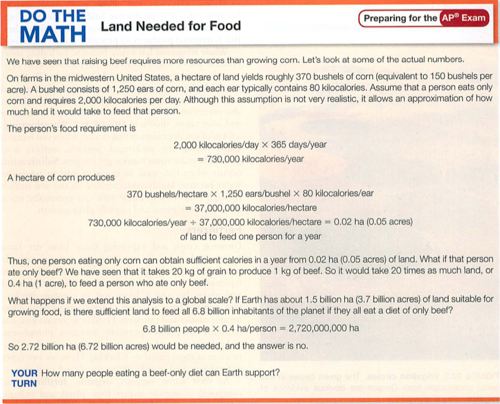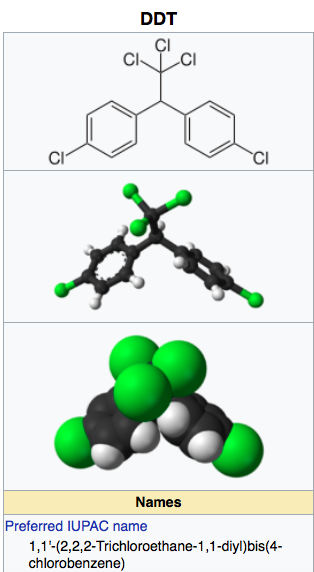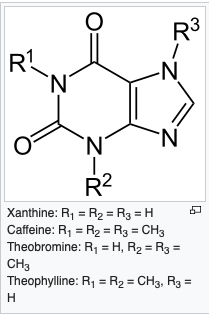Weekend: Unit 4 Zipgrade
Next week: review week, finals (using zipgrade forms)
Modules 29 and 30 on land in January
Recall our main themes: energy->water->food->culture
Food!
Three main groups:
Proteins: always include Nitrogen
Carbohydrates: CHO in chains (starches) or simple (sugars)
Fats: CHO again, but in a special branch structure (glycol backbone) that is good for energy storage and insulation (e.g. killer whales, eskimos)
Proteins: complex molecules of CHO and N. Look up amino acids, note the common structure.
Now look up the amino acid methionine. What element does it contain as well? Why do rotten eggs, swamps (and Kilauea volcano) stink?
CHO=carbohydrates (clever name), usually in a chain, short chains are sugars (used for fuel), longer ones are starches and can be used for structures (e.g. cellulose in plants) or pasta...
smallest: sugars, all end in -ose (glucose, sucrose) LOOK THESE UP, CHECK OUT THEIR MOLECULE SHAPE
glucose is a "monosaccharide" created by photosynthesis (next chapter)
longer chains: starches (rice, pasta) slowly digested (see diabetics, and glycemic index)
structural CHO: cellulose-little boxes with goo inside, need enzymes to break these down (cows)
ENZYMES ALL END IN -ASE
Fats/lipids: same chemical structure as CHO, but built along a glycol (alcohol) backbone.
If the fats have long carbon chains with only single bonds, they are saturated (lots of Hydrogen atoms) and can hold together (e.g. animal fat)
If the long chains have double bonds and don't fit together, they melt easier (e.g. oils) and are called "unsaturated", usually better for your health.
n.b. McDonalds® got into real hot water a while ago for frying all of their stuff in "supersaturated fats". Ugh...
Notes: Chapter 11 FR
Overview:
- Frog 12.3 Agriculture
- Frog 12.4 Food Production
- Ch. 12 assessment
- FR ch. 11 feeding the world
- mod 31 nutritional needs
- mod 32 industrial ag-insecticides, GMO
- mod 33 sustainable farming
Big picture:
- Trophic pyramids in nature are sustainable
- Planet is nearing carrying capacity (K)
- Think of how many "earths" your global footprint represents
- To meet this food demand, current farming and fishing is industrial, not sustainable
Mod 31: Nutritional needs-what humans on our planet need, and what they lack
Read the case study p. 373-how is this like a trophic pyramid in nature?
Undernutrition: lack of calories
Malnutrition: lack of critical part of diet, usually protein (Kwashiorkor)
Food security: not just in lesser developed countries ("LDC"), also in the US
"Food deserts"-what are these?
Famine: one of these impacting a large group, often from crop failure, drought or war/displacement
Overnutrition: common in the US, look up the US obesity rate-how is this determined? Why? Seen any food ads lately?
Look up US obesity rate-----
Meat diet: high in protein, also in fat (energy store) and cholesterol-these contribute to heart disease
Wait-Eskimos eat lots of blubber, why don't they have heart disease? How is this different from Kalahari bush tribes?
Climate
Wait, wait-what happened to Japanese health care system when they moved from their traditional diet?
What impact does this have globally?
Diet for a small planet 1971: planet can sustain population using fewer calories while supplying protein, vitamins and calories. Not by relying on meat.
Vitamins="vital amines"
Food energy subsidy (cost factor):
20 kg of grain to produce 1 kg of beef (20:1 factor, or subsidy factor 20x)
2.8 kg of grain to produce 1 kg of chicken (2.8:1 factor, or subsidy factor of 2.8)
Better to eat beef, chicken, fish or tofu? (you need protein in some form)

Food miles:
Average 1240 miles from farm to table (more here, unless you shop at the farmer's market)
Mod 32: Industrial Farming (and fishing)
Agribusiness: just what it sounds like, the larger conglomerates taking over instead of smaller privately owned family farms. Often use monoculture crops to increase profits (economy of scale), as well as patented seeds and herbicides (e.g. "roundup ready corn")
Hybrid crops vs. GMO crops:
Started as a good thing: Hybrid crops
"Selective breeding" works for animals (dogs, etc.) and crops called "hybrid crops" created by mixing pollen from one breed of plant (e.g. large kernel corn) with another breed of the same plant (e.g. short stalk corn) to form a "hybrid".
Green Revolution, Norman Borlaug-Mexican famine averted by development of hybrid (not GMO) wheat, called dwarf wheat (large kernel, short stalk).dwarf wheat
GMO crops:
in the beginning were just to withstand frost, now into a larger patent issue with GMO seeds and "round up ready crops"
What is the impact on lesser developed countries of this business model?
Genetically modified organisms (GMO) are different: they are done by splicing one part of a gene from an organism (like a frost resistant bacteria) into a totally different species (like a tomato) to make it frost resistant.
"IP" means intellectual property
Monsanto spends money creating GMOs, so they patent the process, meaning using their seeds requires an IP license from them (just like software).
If your farm has these seeds, intentionally or by accident, you have to pay them.
You also cannot "re-use" seeds in the next season without paying for them.
This is just like software in that you could buy the software or pay a monthly fee to use it.
Which makes more money for the company?
What is the impact on poorer countries?
Roundup ready corn: seeds genetically modified to resist roundup (a herbicide)
Result: plant their seeds, spray their herbicide and save money on weeding, more crops, more money (to whom?
Issue: exposure to roundup (a carcinogen) and possible impacts of mutated food
Labeling? Where is this done so far?
High Fructose Corn Syrup: HFCS
Corn Lobby is very powerful (Iowa=presidential primaries)
Corn: HFCS (food, meat, fish) and Corn Ethanol (energy, fuel)
HFCS is in everything
Corn is used to feed cattle, pork, poultry, even fish
Cattle are not used to metabolizing corn, it makes them sick
Bad for humans, increases incidence of diabetes
Main problems:
- Irrigation-desertification
- Pesticides-persistent organic pollutants (POPs)-like in your water hunt
- Fertilizers-eutrophication
Waterlogging: too much water in the soil, roots die (see hydroponics demo at elab, cycles water and air)
Salinization/desertification: using well water for irrigation, salts build up in the soil, infertile soil results
Soil degradation:
Look up Wangari Maathai
Pesticides and herbicides: can be persistent or not (DDT, round up)
Invented during WWII to kill humans (nerve gases, nazis), ("homicides")
Modified to kill pests ("pesticides") or insects ("insecticides")
Special cases include rodent poisons ("rodenticides") and others, like plants ("herbicides")
Pesticide resistance-much like COVID: genetic variation in a rapidly multiplying pathogen will eventually overcome the stress (recall evolution) by replicating only those with immunity to the stress (vaccine, pesticide, drug resistant TB)
Here's one pesticide that changed malaria around the world: DDT:

Inorganic fertilizers: also something from war (Haber process, WWI)
Haber process enabled nitrogen from the air to be chemically grouped with other compounds like
Ammonium nitrate: NH4NO3
This process uses huge amounts of petrochemicals, so these fertilizers are attached to the cost of oil (not coal)
Ammonium nitrate and fuel oil (diesel) can also be combined to make explosives, look up ANFO bombs and terrorism.
Fishing:
Aquaculture means fish or other water animal farmed in the ocean
Hydroponics means growing plants in a water/air medium
Fisheries: population of fish, look up Atlantic Cod fisheries collapse in 1990
Bycatch: unnecessary death of animals caught in fishing nets/traps (dolphins, sharks, etc.)
Mod 33: Sustainable agriculture (fishing too)
Desertification (see above)
intercropping vs. monocropping, see "the three sisters"
Contour cropping: saves space, reduces runoff, preserves top soil (e.g. our garden, most of Asia)
No-till ag: same idea, retains organic material in topsoil, reduces erosion by wind and water
IPM: integrated pest management (see Lalamilo Farmers)
Organic agriculture (also mentioned in Portlandia and Colin the Chicken)
More than just N-P-K, also micronutrients, slower release time, low salinity
CAFO: concentrated animal feed operation (e.g. chickens, pigs, cattle)
Usually inorganic feed (purines), hormones and other drugs
Methyl xanthines: caffeine, theobromine, theophylline
evolved plant poisons for insects:

- Xanthine: group name
- Caffeine: energy drinks, coffee, soft drinks (to offset drowsiness from insulin spike)
- Theobromine: chocolate
- Theophylline: tea (also a bronchodilator-helps breathing)
Actually, almost anything that ends in -ine is usually a plant poison evolved to kill insects:
- nicotine: tobacco
- caffeine: coffee, tea
- cocaine: coca plants
/groups/apenvironmentalscience/search/index.rss?tag=hotlist/groups/apenvironmentalscience/search/?tag=hotWhat’s HotHotListHot!?tag=hot6/groups/apenvironmentalscience/sidebar/HotListadminadmin2020-08-19 15:43:59+00:002020-08-19 15:43:59updated30adminadmin2011-09-08 21:36:21+00:002011-09-08 21:36:21updated29adminadmin2011-08-24 23:20:40+00:002011-08-24 23:20:40updated28adminadmin2011-08-24 22:42:36+00:002011-08-24 22:42:36updated27adminadmin2011-08-22 02:41:09+00:002011-08-22 02:41:09updated26adminadmin2011-08-22 02:40:02+00:002011-08-22 02:40:02updated25adminadmin2011-08-21 20:39:11+00:002011-08-21 20:39:11updated24adminadmin2011-08-21 20:30:42+00:002011-08-21 20:30:42updated23adminadmin2011-08-21 20:30:13+00:002011-08-21 20:30:13updated22adminadmin2011-08-21 20:25:48+00:002011-08-21 20:25:48updated21adminadmin2011-08-21 20:25:18+00:002011-08-21 20:25:18updated20adminadmin2011-08-21 00:22:12+00:002011-08-21 00:22:12updated19adminadmin2011-08-21 00:18:56+00:002011-08-21 00:18:56updated18adminadmin2011-08-21 00:15:43+00:002011-08-21 00:15:43updated17adminadmin2011-08-21 00:12:37+00:002011-08-21 00:12:37updated16adminadmin2011-08-21 00:12:02+00:002011-08-21 00:12:02updated15adminadmin2011-08-20 23:59:41+00:002011-08-20 23:59:41updated14Added tag - hotadminadmin2011-08-20 23:59:38+00:002011-08-20 23:59:38addTag13Added tag - conservationadminadmin2011-08-20 23:59:32+00:002011-08-20 23:59:32addTag12Added tag - critical thinkingadminadmin2011-08-20 23:59:19+00:002011-08-20 23:59:19addTag11Added tag - ch1adminadmin2011-08-20 23:59:08+00:002011-08-20 23:59:08addTag10Added tag - sustainabilityadminadmin2011-08-20 23:59:05+00:002011-08-20 23:59:05addTag9adminadmin2011-08-20 20:47:39+00:002011-08-20 20:47:39updated8adminadmin2011-08-20 20:46:15+00:002011-08-20 20:46:15updated7adminadmin2011-08-20 20:43:07+00:002011-08-20 20:43:07updated6adminadmin2011-08-20 19:14:13+00:002011-08-20 19:14:13updated5adminadmin2011-08-20 19:11:26+00:002011-08-20 19:11:26updated4adminadmin2011-08-20 18:59:57+00:002011-08-20 18:59:57updated3adminadmin2011-08-20 18:56:59+00:002011-08-20 18:56:59updated2First createdadminadmin2010-11-07 01:41:28+00:002010-11-07 01:41:28created1wiki2020-08-19T15:43:59+00:00groups/apenvironmentalscience/wiki/welcomeFalseCh01 Overview/groups/apenvironmentalscience/wiki/welcome/Ch01_Overview.htmladmin30 updatesCh01 Overview
Welcome to our APES wiki. You should be able to do the following after logging in with your account:
To create a new page, click the ...Falseadmin2020-08-19T15:43:59+00:00adminadmin2013-02-05 02:24:03+00:002013-02-05 02:24:03updated4Added tag - hotadminadmin2013-02-05 02:24:02+00:002013-02-05 02:24:02addTag3adminadmin2013-02-05 02:05:35+00:002013-02-05 02:05:35updated2First createdadminadmin2013-02-05 02:03:35+00:002013-02-05 02:03:35created1wiki2013-02-05T02:24:03+00:00groups/apenvironmentalscience/wiki/394a8FalseEnergy notes/groups/apenvironmentalscience/wiki/394a8/Energy_notes.htmladmin4 updatesEnergy notes
Week of 2.4.13: energy wrap-up
e2 video: coal vs. nuclear in class
AP exams: FRQ
2002.1
2004.2
2006.1
2007.2
2008.1
...Falseadmin2013-02-05T02:24:03+00:00adminadmin2013-02-05 02:23:20+00:002013-02-05 02:23:20updated6Added tag - hotadminadmin2013-02-05 02:23:18+00:002013-02-05 02:23:18addTag5adminadmin2013-02-05 02:23:12+00:002013-02-05 02:23:12updated4adminadmin2013-02-05 02:21:48+00:002013-02-05 02:21:48updated3adminadmin2013-02-05 02:20:26+00:002013-02-05 02:20:26updated2First createdadminadmin2013-02-05 02:06:00+00:002013-02-05 02:06:00created1wiki2013-02-05T02:23:20+00:00groups/apenvironmentalscience/wiki/c360bFalseFeb-May plan/groups/apenvironmentalscience/wiki/c360b/FebMay_plan.htmladmin6 updatesFeb-May plan
1. conclusion of energy chapters (see previous wiki)
2. GCC AP questions FRQ:
2006.2
2005.3
2005.4
2007.3
...Falseadmin2013-02-05T02:23:20+00:00adminadmin2012-03-07 05:53:55+00:002012-03-07 05:53:55updated14adminadmin2012-03-07 05:43:38+00:002012-03-07 05:43:38updated13adminadmin2012-03-07 05:41:35+00:002012-03-07 05:41:35updated12adminadmin2012-03-07 05:38:57+00:002012-03-07 05:38:57updated11Added tag - hotadminadmin2012-03-07 05:38:55+00:002012-03-07 05:38:55addTag10adminadmin2012-03-07 05:36:47+00:002012-03-07 05:36:47updated9adminadmin2012-03-07 05:22:26+00:002012-03-07 05:22:26updated8adminadmin2012-03-07 05:20:01+00:002012-03-07 05:20:01updated7adminadmin2012-03-07 05:18:58+00:002012-03-07 05:18:58updated6adminadmin2012-03-07 04:58:55+00:002012-03-07 04:58:55updated5adminadmin2012-03-07 04:57:33+00:002012-03-07 04:57:33updated4adminadmin2012-03-07 04:56:53+00:002012-03-07 04:56:53updated3adminadmin2012-03-07 04:54:20+00:002012-03-07 04:54:20updated2First createdadminadmin2012-03-07 04:53:33+00:002012-03-07 04:53:33created1weblog2012-03-07T05:53:55+00:00groups/apenvironmentalscience/weblog/de030FalseGreen Apple/groups/apenvironmentalscience/weblog/de030/Green_Apple.htmladmin14 updatesGreen Apple
Team,
Please watch this video about NYC:
Trailer:
http://www.pbs.org/e2/episodes/101_the_green_apple_trailer.html
On the server:
http://physics.hpa...Falseadmin2012-03-07T05:53:55+00:00adminadmin2011-09-13 19:08:24+00:002011-09-13 19:08:24updated4Added tag - hotadminadmin2011-09-13 19:08:22+00:002011-09-13 19:08:22addTag3adminadmin2011-09-13 19:08:10+00:002011-09-13 19:08:10updated2First createdadminadmin2011-09-13 19:04:30+00:002011-09-13 19:04:30created1weblog2011-09-13T19:08:24+00:00groups/apenvironmentalscience/weblog/4ecddFalseQuestions for Wednesday, wiki adds/groups/apenvironmentalscience/weblog/4ecdd/Questions_for_Wednesday_wiki_adds.htmladmin4 updatesQuestions for Wednesday, wiki adds
Team,
I'd like to try something for class tomorrow: each of you to create a question from chapter 3, and email it to me by this evening (Tuesday). Pl...Falseadmin2011-09-13T19:08:24+00:00hot/groups/apenvironmentalscience/search/index.rss?sort=modifiedDate&kind=all&sortDirection=reverse&excludePages=wiki/welcomelist/groups/apenvironmentalscience/search/?sort=modifiedDate&kind=all&sortDirection=reverse&excludePages=wiki/welcomeRecent ChangesRecentChangesListUpdates?sort=modifiedDate&kind=all&sortDirection=reverse&excludePages=wiki/welcome0/groups/apenvironmentalscience/sidebar/RecentChangesListmodifiedDateallRecent ChangesRecentChangesListUpdateswiki/welcomeNo recent changes.reverse5searchlist/groups/apenvironmentalscience/calendar/Upcoming EventsUpcomingEventsListEvents1Getting events…
Comments